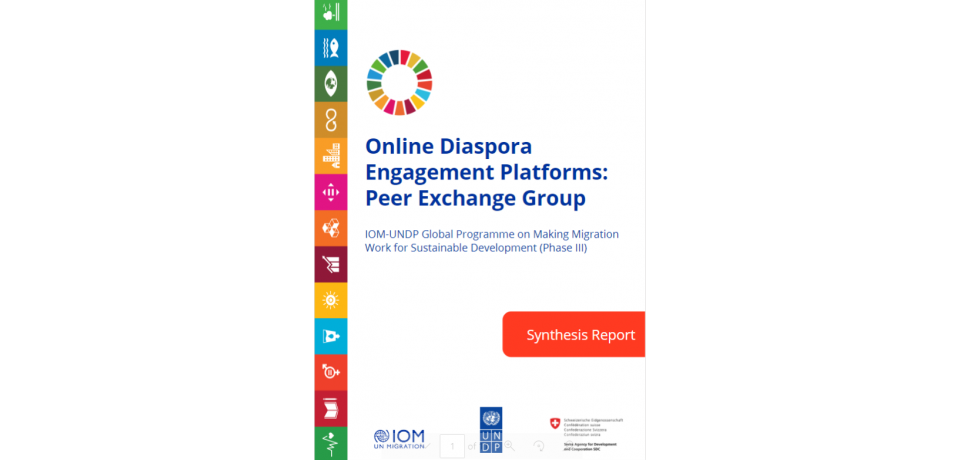Online Diaspora Engagement Platforms: Peer Exchange Group Synthesis Report
Related Sustainable Development Goals and Global Compact for Migration Objectives
This quick report captures case studies, examples, tools and lessons learned from countries and diaspora experts that aim to empower and enable diaspora communities to strengthen their ties to their homelands through digital platforms. It showcases concrete examples of online diaspora engagement platforms from 3 countries (the Republic of Moldova's national Emoldovata platform, Jamaica's plans for development, and Senegal's, sub-national regional Help Office for Migrants platform in Sédhiou).
Diaspora can be powerful actors that contribute to development outcomes in their communities of origin and destination, showcasing the positive potential of mobility to improve the lives and livelihoods of everyone. These tips and good practices can be useful for building online platforms to enhance diaspora engagement and aim to identify key success factors and common challenges in setting up and tailoring these platforms to diaspora members’ needs. Virtual diaspora engagement to leverage the diaspora's skills and contributions for local solutions was shown to be especially needed during and for recovery from COVID-19. The exchange showcased the importance of shared management of online platforms to ensure sustainability and successful engagement with diaspora. Tips and tricks focused on promoting online diaspora platforms, streamlining governance and ensuring centralized administration of the platforms, and reaching a wide diaspora audience with diverse digital access and experiences.
The IOM-UNDP Global Programme on Making Migration Work for Sustainable Development works with 11 countries to engage with and encourage the participation of the diaspora, private sector, and local communities in line with multi-stakeholder, “whole-of-society” approaches called for in the 2030 Agenda for Sustainable Development. The report is the result of a dynamic and lively exchange through the Diaspora Engagement Peer Exchange Group (PEG), co-led by the Republic of Moldova’s Bureau of Diaspora Relations, a small informal discussion group that stimulates peer-to-peer support as part of the Programme’s knowledge exchange and capacity development efforts. The PEG took place via a virtual discussion on Zoom and was the first of a series of diaspora engagement focus peer exchanges.
You can read more about each good practice, find resources on online diaspora engagement platforms, and more in the full Online Diaspora Engagement Platforms: Peer Exchange Group!
